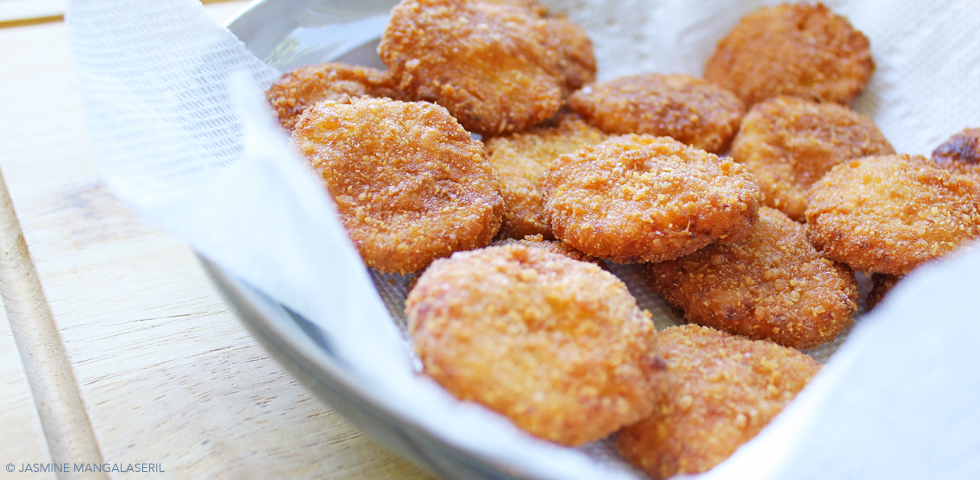
Huzzah?
According to The Berlin Daily Telegraph, “there has been considerable worry on the part of a certain class in the city.” The shortlist wasn’t to blame: King George V’s radio silence caused furrowed eyebrows because he had yet to congratulate the city on voting to rid itself of its enemy name.
It’s not as if His Majesty didn’t know of the momentous event. Three weeks earlier Alderman Hallman telegrammed this jubilant message to the King:
To His Majesty King George V:
The loyal citizens of Berlin, Canada, rejoice to inform Your Majesty that they have this day cast off forever the name of the Prussian capital. (Signed)
Ald. JA Hallman, Chairman
This week, the city councillor received the following:
Ald. JA Hallman, Berlin.
Sir, —I have it in command from His Royal Highness, the Governor-General, to inform you that a telegram of the 20th of May last to the King on the subject of the change of the name of Berlin, Ont., has been received by His Majesty.
JOSEPH POPE,
Under Secretary for External Affairs
As noted in The Berlin News-Record, “It looks to me as though it might go down in county history as the puzzle message: Find the congratulations.”
A better name than “Kitchener” would be hard to find
Mourning continued for the late Earl Kitchener. England held three memorials, and Berlin’s English-language papers continued to print glowing tributes, including these words from Britain’s Poet Laureate, Robert Bridges‘:
Unflinching hero, watchful to foresee
And face thy country’s peril wheresoe’er,
Directing war and peace with equal care
Till by long toil ennobled thou wert he
Whom England call’d and bade ‘set my arm free’
To obey my will and save my honour fair,
What day the foe presumed on her despair
And she herself had trust in none but thee.
Among Herculean deeds the miracle
That mass’d the labour of ten years in one
Shall be thy monument. Thy work was done.
Ere we could thank thee, and the high sea swell
Surgeth unheeding where thy proud ship fell
By the lone Orkneys, at the set of sun.
The name-change contest had reopened for a week–enough time for 200-300 letters to arrive. Although “A goodly number” of new names appeared, of which approximately 60 per cent suggested “Kitchener” (which happened to be favoured by businessmen and manufacturers). As The Daily Telegraph‘s editorial noted, “in perpetuating the name of the great soldier and civil administrator, our citizens would be doing honour not only to his memory but to themselves.”
The British sovereign at half value
Canadians may have grumbled about rising costs, but our price hikes were nothing like what Britons faced. The British engineering trade union wanted to take immediate steps to control food prices. While the Asquith government issued more appeals for economy (especially in luxury goods), the Financial Secretary to the Treasurer quoted significant price increases for staples (July 1914-April 1916):
| Foodstuff | Percentage increase |
| Sugar | 128 |
| Fish | 90 |
| Flour | 60 |
| Beef | 40-74 |
| Mutton | 37-89 |
| Milk | 37 |
This “species of social prestige” is cordially invited to stay home
According to despatches, “if a Canadian soldier cannot go to war without the females of his household bringing up the rear, he had better stay home.” It seems as if scores of Canadian wives, sisters, cousins, and aunts who followed their officer husbands to Britain made a nuisance of themselves. As a result, British military leaders “cordially invited (the ladies) to stay in their native land and not tag along.”
Here at home, soldiers’ wives developed “a stupid, short-sighted rivalry” to see how quickly they could join their husbands (etc.) in England. These visitors couldn’t work in hospitals or anywhere else, which prompted this comment, “all they do over [in Britain] is to eat food and take up room that is much needed by the natives. With every added female at this juncture, England’s troubles increase.”
Making munitions seven days a week
The Canadian Manufacturers’ Association’s Executive Committee urged Ottawa to suspend The Lord’s Day Act and allow manufacturers who supported the war effort to operate on Sundays.
Debate was fraught. An opponent, Mr DJ Fraser of St John, Quebec, said, “Man is so constituted that he cannot work right ahead without one day out of seven for rest.” Why did they need this petition since Britain manufactured what it needed, and didn’t rely on American manufacturers? “I tell you that there is danger that this will be the thin edge of the wedge and that once we have placed the shackles on, we will never be able to throw them off.”
Meanwhile, Toronto’s Mr EG Henderson favoured the petition. “I hold that if I worked on Sunday to help defeat the Germans, I would be doing the Lord’s work. I would not be desecrating the Sabbath by doing all I could do to beat the Huns.”
It’s our hour, and you can’t make us give it up
So far, the Daylight Savings scheme ran relatively smoothly. Except in neighbouring Guelph, Ontario. The News-Record reported most of that city’s manufacturers didn’t make the change because “in almost every instance, the employees of the factories are to blame for this state of affairs, as they put up a vigorous kick against any change.”
Pedal-pushing profligates
“Five more” cycling scourges were each fined $2.50 (almost $50 – see note on conversion) for breaking the bylaw forbidding riding bicycles on sidewalks (which, **cough cough** is still on the books **cough cough**).
Notes
- A 1917 collection of war poems had a slightly revised version of Bridges’ work. This post reflects what appeared in The Daily Telegraph.
Want a bit more information?
- About the Kitchener 1916 Project
- Bank of Canada’s Inflation Calculator was used to calculate modern price equivalents (2016)
The Recipe
I’ve noticed deep-fried mouthfuls—cutlets, fritters or croquettes—were a popular treatment for many foods–potato-covered meats, vegetables, doughs, fruits and cheese. Deep-fried cheese is not unheard of–mozzarella sticks and jalapeno poppers come to mind. Unlike whole pieces of cheese or a cheese stuffing, this recipe fries a cooled, breaded cheese sauce.
I asked Carole, a favourite cheesemonger at a favourite specialty food shop, for a recommendation. The recipe called for “rich cheese,” which we both interpreted as a double- or triple-cream Brie. While delicious, we looked at other options, and I took home a small parcel of Beemster Graskaas, a choice that made me very happy.
Cheese Croquettes (The Berlin Daily Telegraph, 16 March 1916)
Make thick white sauce using 2 tablespoons of flour blended with two tablespoons of butter. Salt-spoon of salt. Add to this 2/3 of a cup of milk. Beat until a smooth, creamy sauce is secured. Put into double boiler and add tablespoon of grated Parmesan cheese. Cook 15 minutes. Remove from hot water jacked at beat into these sauce 2 egg yolks. Great or dice 1 cup of rich cheese and add to the hot cream sauce. Stir until all the cheese is melted. Turn into well-greased shallow pan and set aside to cool. When ready to use, turn out on board, cut into even size or with fance shape cutter. Dip in beaten egg. Roll in fine crumbs and fry in deep fat. Drain on paper
Cheese Croquettes (Modern Equivalent)
Yield: 12-16 croquettes
| 30g | 30ml | 2 tablespoons | Butter |
| 20g | 30ml | 2 tablespoons | All-purpose flour |
| 1.25ml | 1.25ml | ¼ teaspoon | Salt |
| 155ml | 155ml | ½ cup + 2 tablespoons | Milk |
| 5g | 15ml | 1 tablespoon | Grated Parmesan cheese |
| 2 | 2 | 2 | Egg yolks |
| 95g | 235ml | 1 cup less one tablespoon | Grated or cubed cheese (see notes) |
| 1 | 1 | 1 | Egg, beaten |
| Fine bread crumbs, as needed | |||
| Oil, for frying |
Set water to boil in the double boiler. Grease and line a 20cm x20cm brownie pan with parchment. Grease the parchment for good measure.
Melt the butter and whisk in the flour and salt. Cook the mixture for a few minutes, but try to avoid letting it get too much colour. Remove from heat and gradually whisk in the milk. Return to a medium-low flame and stir until the sauce is thick.
By this point, the water pan should be boiling. Assemble the double boiler and add the Parmesan to the sauce. Cook for 15 minutes.
Mix the egg yolks into the sauce. Add the grated cheese a few tablespoons at a time—be sure the cheese fully incorporates into the sauce before adding more. Balance flavours to taste.
Pour the cheese mixture into the prepared pan and spread to an even thickness. Blot off any accumulated oil that has pooled on the top of the cheese. Let cool.
When ready to make the croquettes, set up your pot/fryer for deep fat frying, as you normally would. Heat the oil to 185C/365F.
While the oil is heating, turn the cheese slab onto a cutting board and cut out the croquettes to the desired size. Dip in egg and cover in crumbs.
When the oil reaches temp, fry the croquettes in batches, until golden brown on both sides. Drain on kitchen towelling.
Serve warm.
Notes
- The recipe called for “rich cheese” but it should work with other kinds of cheese such as Cheddar, Havarti, Gouda.
- Add the salt after you’ve mixed shredded/cubed cheese into the sauce—depending upon the cheese you’ve used, it may not need any additional salt.
- The double boiler method keeps the mixture at a gentle heat, but it could be made in a pot, over direct heat. Instead of cooking for 15 minutes, I’d cook it for about 10 minutes.
- I used a 4cm/1-½” round cutter, which cut 16 rounds.
- If you were looking to serve these with sauce, I’d opt for something sweet and sharp (to balance the salty richness), with a bit of heat—something like a chilli’d apple chutney or a spicy tomato jam.


[…] 09-15 June 1916: Word from the king/Cheese Croquette […]